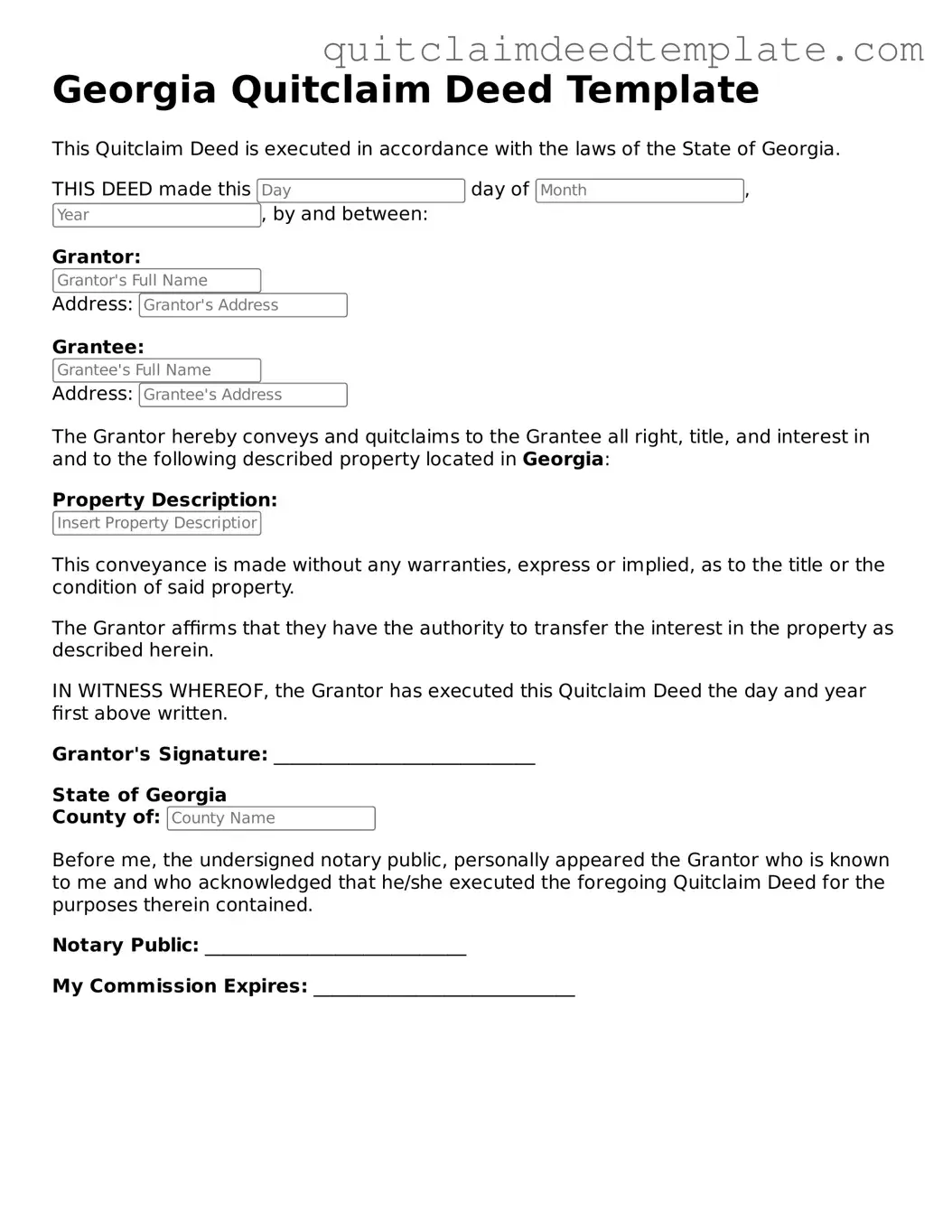Documents used along the form
When transferring property in Georgia, a Quitclaim Deed is often accompanied by several other forms and documents to ensure a smooth and legally binding transaction. Understanding these additional documents can help streamline the process and protect the interests of all parties involved.
- Warranty Deed: This document provides a guarantee that the seller holds clear title to the property and has the right to sell it. Unlike a quitclaim deed, it offers more protection to the buyer.
- Property Transfer Tax Form: This form is required to report the transfer of property and calculate any applicable transfer taxes. It ensures compliance with state tax laws.
- Affidavit of Title: This sworn statement confirms the seller's ownership of the property and discloses any liens or encumbrances. It adds an extra layer of assurance for the buyer.
- Title Insurance Policy: This document protects the buyer against any future claims or disputes regarding the property’s title. It is a crucial safeguard in real estate transactions.
- Closing Statement: This document outlines all financial aspects of the transaction, including fees, taxes, and the final sale price. It provides transparency and clarity for both parties.
- Lease Agreement: If the property will be rented out, a lease agreement outlines the terms between the landlord and tenant, including rent, duration, and responsibilities.
- Power of Attorney: This legal document allows one person to act on behalf of another in property transactions. It is useful when the property owner cannot be present at the closing.
- Homeowner’s Association (HOA) Documents: If the property is part of an HOA, these documents provide rules and regulations that govern the community, along with any associated fees.
- Survey Report: A survey report details the property boundaries and any easements. It is essential for confirming the exact dimensions of the property being transferred.
Each of these documents plays a vital role in the property transfer process in Georgia. By being aware of them, individuals can navigate the complexities of real estate transactions with greater confidence and security.
